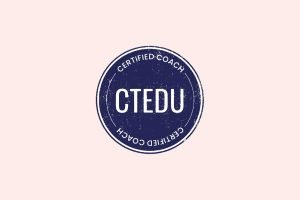Last updated on November 23, 2021
Blogging is one of the leading strategies professionals are using today to increase their site traffic and generate leads – and for good reason!
If done well, a blog can build trust and authority in your brand, set you apart from the competition, and boost your website’s visibility in Google search results.
However, it’s easy to run into trouble if you don’t have a clear strategy in mind when you start your blog.
The key to building a successful blog is to treat it as a marketing tool for your business rather than a platform for your creativity. In fact, if you treat it as a playground it’s not going to do your business a lick of good.
The good news is that other industries have already figured out the best strategies for successful blogging and Life Coaches can apply those same strategies to start reaping the rewards.
The three tips below will help you elevate your blog to its fullest marketing potential and help you land new clients.
1. Address an Issue or Answer a Question
The magic of blogs is that they can provide useful information in a relaxed, engaging format that attracts potential clients, even those who weren’t looking for your life coaching service explicitly. This is because your future clients are using Google every day to find answers to their questions. If you’re a Life Coach, you’re in the perfect position to answer your prospective clients’ questions with your blog posts.

According to Hubspot, the number one reason people read blogs is to learn how to do something new. Articles that include how-to guides, tutorials, and quick tips get a large amount of organic traffic from Google. By catering to this trend, your blog can reach a wide audience of people who may be interested in your services.
Capitalize on this by applying the “how-to” methodology to popular life coaching topics – in other words, topics that your target clientele will be searching for such as “meditation”, “journaling”, “career counseling” and “mindfulness” to name a few. How-to articles about these topics and others like them should appear regularly in your blog.
In order to make your blog content work for your business, it needs to work for your target clientele. If you can answer their question, teach them something, or give them valuable tips in your posts, you’ll be well on your way to building a successful blog that markets your business long after you hit publish.
2. Include a Call-to-Action (CTA)
The idea behind the CTA is simple – you want the reader to take some action that will bring them closer to becoming a client. In some cases, this is a simple newsletter sign-up, which can be a great way to build a relationship with your prospective clients.
A “Sign Up for My Newsletter!” button at the end of an article can be a great CTA that requires little effort on your part, so you should have one at the end of every blog post. Newsletters give you an ongoing audience for your blog, so these two tools work well together.
Some people will sign up for your newsletter if they love your blog content, but you can’t count on this working most of the time. These days we are all inundated with so much junk mail that giving out our email address can seem like an unfair tradeoff.
That’s why a more effective method is to give something away with your CTA, like a free consultation, ebook, course, or even a discount on your services. For many people, this makes the exchange for their email address feel a little more even.

If you’ve already published a book or developed a course, this can be a great way to entice prospective clients. An offer of something you’ve spent time and money on (not too much, of course!) can build trust and invoke the reciprocity effect, which is the tendency for people to want to offer something in return for something they’ve been given. This is effective when used in marketing, as long as you’re offering a valuable product or service that relates to the service you are selling.
For an example of this in action, imagine you offer a free, 15-minute video course that teaches effective journaling in exchange for the person’s email address. With this, you’re accomplishing several things.
First, their email was added to your mailing list which gives you the opportunity to engage them in your email marketing campaigns.
Second, you are building rapport with the reader by delivering on your word. The person found your website when they searched for a topic like “how to get the most out of journaling”. Once there, they found an informative blog article and a free, high-quality course on that same topic. You’ve gone above and beyond their expectations and proved that you really know your stuff.
Once you have them enjoying your content, you’re well positioned to advertise your life coaching business and offer your paid materials and services. Include additional CTAs in your course to make sure they’re being funneled in the right direction – towards becoming a client.
CTAs, especially those that call on the reciprocity effect, are an effective way to grow your client base. Make sure to include a CTA in every blog post.
3. Work on Search Engine Optimization (SEO)
“Search is the number one traffic source to blogs across all industries.”
Source: HubSpot
With a statistic like that, you want to make sure your blog is showing up on the first page of Google’s search results. And how do you do that? With SEO of course! (I can hear the groans of anguish now.)
SEO is an important part of creating a successful business blog, but you don’t have to be a digital marketing expert to get results. Most of your competitors are not SEO experts, and many of them aren’t even making a serious SEO effort. This is an opportunity for you to outperform them.
However, you’ll need to develop a strategy to successfully execute SEO on your blog, so this isn’t something you can gloss over. To start, you must know your audience. Then, you’ll need to find the most relevant keywords and include them in your blog posts.
What are keywords, you ask? Keywords are the words that people type into Google when they’re looking for information online.
Google uses keywords to find the most relevant information when a search is performed, so it’s important to know which ones your potential clients are typing into Google. The more relevant keywords you use in your content, the more likely you are to get traffic from your target clientele.
The best way to find out what these keywords are is to do some research.
Take the steps below to get started:
Brainstorm keywords
Think about your future clients as you consider what they’re likely to search for in Google that could bring them to you. Now write down every word or phrase that comes to mind. For example “what does a life coach help you with?”, “life coach relationships”, or “career coach near me”. The idea here is to generate as many potential keyword ideas as possible.
Use Google Suggest
Now, open Google and start typing in some of the keywords you brainstormed, but instead of hitting “Enter” to search, put a space at the end of the word or phrase you typed in. Below your entry, you’ll see some suggestions that expand on your keyword. These are useful because they’re based on real searches, so they’ll give you an idea of what people are actually searching for. Write down any suggestions that seem relevant to your life coaching business.
Then, press “Enter” on your original keyword to complete the search. Scroll to the bottom of the page and write down all relevant search terms under “Related Searches”.
Repeat this process for all of the keywords you brainstormed.
Rank Your Keywords
Once you have a list of keywords, rank these from most to least relevant to your business. Incorporate the highest-ranking keywords into your blog posts to increase your chances of showing up in search results.
Populate Your Blog and Observe
It can take one to three months to see results from your SEO efforts, but in the meantime, you should be publishing keyword-targeted content on your blog at least twice a week, and more if you can. Marketing Insider Group says that publishing 2-4 times a week yields the best results.
Focus on using your keywords while providing valuable information to your target clientele. Be sure you’re not sacrificing quality for quantity.
From there, you’ll want to make sure you’re on the right track with the keywords you chose.
Many blog hosting platforms offer performance analytics tools that can help. Once you’ve published a few blog posts, use those tools to view your blog traffic and gauge the effectiveness of your keywords.
If you’re serious about your blog (you should be!) and want to go more in-depth, a powerful tool to consider is Google Analytics. It’s a free tool that can boost your understanding of your blog’s performance and guide your keyword decisions moving forward.
Additional Tools
If you need a little more help, there are some great paid tools like Google Ads Keyword Planner or SEMrush’s fantastic suite of SEO tools, competitor research tools, and content optimization pointers.
There are thousands of free or inexpensive resources out there to help you get your blog ranking on the first page of Google consistently.
You can also work with a professional blog writer who understands SEO best practices to build and maintain a high-quality blog for your business.
In Conclusion
A blog is a powerful marketing tool that can help your business flourish, but if you want to stand out among the competition, your blog must be fine-tuned to market your business effectively.
Build your blogging strategy by providing in-depth relevant insights for your future clients, including effective CTAs, and using SEO best practices in every post. When you start doing these things, your blog will quickly become a powerful marketing tool that will pay for itself many times over.
Best of luck to you!

Alicia Eichman
Alicia Eichman is a Freelance Health and Wellness Writer specializing in Life Coach blogging. Find out how she can help your business atwww.silverquillwriting.com.
















Be First to Comment